
Nature’s Pharmacy e Encyclopedia of Herbal Medicine Different Herbs and Best Remedies 2024
admin098
- 0
The Encyclopedia of Herbal Medicine is the authoritative reference on herbal plants and their medicinal properties for those looking for normal remedies.
In a time where present day medicine dominates healthcare, there’s a developing interest in returning to nature’s own remedies. Medicinal herbs, with their wealthy history traversing thousands of a long time over different societies, offer a treasure trove of healing potential. This comprehensive direct will take you on a journey through the captivating world of herbal medicine, investigating its science, applications, and the intelligence behind its utilize.
Table of Contents
ToggleThe Timeless Wisdom of Herbal Medicine
Encyclopedia of Herbal Medicine isn’t just a relic of the past, it’s a living, evolving practice that continues to surprise and impress modern science. From the ancient Egyptian papyrus detailing herbal remedies to Traditional Chinese Medicine and Ayurveda, plants have been humanity’s first line of defence against illness for millennia.
“The art of healing comes from nature, not from the physician. Therefore the physician must start from nature, with an open mind.” Paracelsus
This age-old wisdom is experiencing a renaissance. As people seek more natural approaches to health, herbal remedies are stepping back into the spotlight. But this isn’t just about tradition, it’s about rediscovering powerful plant compounds that can complement modern medicine. Read more History of Herbalism!
The Science Behind Encyclopedia of Herbal Medicine
At the heart of herbal medicine lies a complex world of phytochemicals plant-based compounds that can have profound effects on the human body. These aren’t just simple substances; they’re intricate molecular structures that can influence our biological systems in myriad ways.
Phytochemicals: Nature’s Pharmacy
- Alkaloids: Powerful compounds like morphine and quinine
- Flavonoids: Antioxidants that fight inflammation and protect cells
- Terpenes: Aromatic compounds with mood-altering properties
- Polyphenols: Wide-ranging benefits from heart health to cancer prevention
These compounds don’t work in isolation. The “entourage effect” suggests that the whole herb often works better than its isolated components. This synergy is why herbal medicine can be so effective and why it’s more than just the sum of its parts.
Essential Medicinal Herbs and Their Properties
Let’s dive into some of nature’s most potent remedies List of plant used in herbalism:
Chamomile: Nature’s Calming Agent
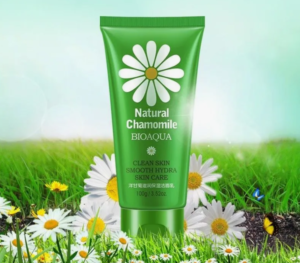
Chamomile, with its delicate white flowers, has been used for centuries to promote relaxation and ease digestive discomfort.
Benefits:
- Promotes relaxation and sleep
- Reduces anxiety and stress
- Soothes digestive issues
- May help with skin inflammation
How to Use:
- Tea: Steep 1-2 teaspoons of dried flowers in hot water for 5-10 minutes
- Topical: Apply cooled tea as a compress for skin irritations
- Capsules: 400-1600 mg daily, divided into multiple doses
Safety: Generally safe, but may interact with blood thinners. Avoid being allergic to plants in the daisy family.
Echinacea: Immune System Booster
Echinacea, native to North America, has been a go-to remedy for colds and flu for generations.
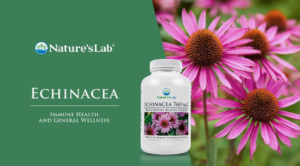
Benefits:
- May shorten duration of colds and flu
- Boosts immune system function
- Potential anti-inflammatory effects
How to Use:
- Tea: Steep 1-2 grams of dried herb in hot water for 10-15 minutes
- Tincture: 2-3 ml, 3 times daily
- Capsules: 300-500 mg, 3 times daily
Safety: Short-term use (up to 8 weeks) is recommended. May interact with immunosuppressants.
Ginger: Digestive Aid and Anti-Inflammatory Powerhouse
Ginger, with its spicy kick, has been used in traditional medicine systems worldwide for thousands of years.
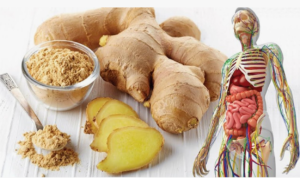
Benefits:
- Relieves nausea and motion sickness
- Reduces inflammation
- May help with pain relief
- Supports cardiovascular health
How to Use:
- Fresh root: Grate 1-2 inches into hot water for tea
- Capsules: 250-500 mg, 3-4 times daily
- Crystallized ginger: Chew a small piece for nausea relief
Safety: Generally safe, but may increase bleeding risk. Use caution if on blood thinners.
Turmeric: The Golden Healer
Turmeric, the vibrant yellow spice, has been used in Ayurvedic medicine for millennia and is now gaining recognition in Western medicine.
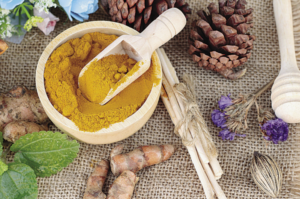
Benefits:
- Potent anti-inflammatory
- May help with arthritis pain
- Supports brain health
- Potential anticancer properties
How to Use:
- Golden milk: Mix 1 tsp turmeric powder with warm milk and honey
- Capsules: 500-2000 mg daily of curcumin (active compound)
- Culinary use: Add to curries, smoothies, and golden lattes
Safety: Generally safe, but may interact with blood thinners and diabetes medications.
Valerian: Nature’s Sleep Aid
Valerian root has been used since ancient Greek and Roman times to promote relaxation and improve sleep quality.
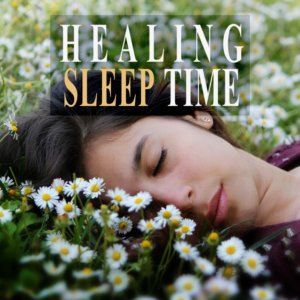
Benefits:
- Improves sleep quality
- Reduces anxiety
- May help with menstrual cramps
How to Use:
- Tea: Steep 2-3 grams of dried root in hot water for 10-15 minutes
- Tincture: 1-1.5 teaspoons in water, 30 minutes before bed
- Capsules: 300-600 mg, 30 minutes to 2 hours before bedtime
Safety: Can cause drowsiness. Don’t combine with alcohol or sedatives. May take 2-4 weeks for full effect.
Preparing and Using Herbal Remedies
Understanding how to prepare herbs is crucial for maximizing their benefits. Here are some common methods:
- Teas and Infusions
- Steep herbs in hot water
- Great for delicate herbs like chamomile and peppermint
- Tinctures and Extracts
- Concentrated herbal preparations in alcohol or glycerin
- Longer shelf life and faster absorption
- Capsules and Tablets
- Convenient for precise dosing
- Good for herbs with strong tastes
- Salves and Ointments
- Topical applications for skin conditions or pain relief
- Easy to make at home with infused oils and beeswax
DIY Herbal Remedy: Immune-Boosting Tea
Ingredients:
- 1 part echinacea root
- 1 part elderberries
- 1/2 part ginger root
- 1/4 part cinnamon bark
Instructions:
- Mix herbs in a jar
- Use 1 tablespoon per cup of hot water
- Steep for 10-15 minutes
- Strain and enjoy, adding honey if desired
Safety and Efficacy of Herbal Medicine
While herbs can be powerful healing tools, it’s crucial to approach them with respect and caution:
Herb-Drug Interactions: Some herbs can interfere with medications. Always consult a healthcare provider before combining herbs with prescription drugs.
Quality Control: Choose reputable brands that use third party testing for purity and potency.
Dosage Matters: More isn’t always better. Follow recommended doses and start low, especially with new herbs.
Pregnancy and Breastfeeding: Many herbs aren’t safe during pregnancy or while nursing. Always check with a healthcare provider. Read About eminence skin care
Case Study: St. John’s Wort and Depression
St. John’s Wort has been extensively studied for its effects on mild to moderate depression. A meta-analysis published in the Journal of Clinical Psychiatry found that it was as effective as standard antidepressants for mild to moderate depression, with fewer side effects.
Key Findings:
- Comparable efficacy to SSRIs
- Fewer side effects reported
- Not recommended for severe depression
- Can interact with many medications, including birth control pills
This case highlights both the potential and the precautions necessary when using herbal remedies.
Sustainable Harvesting and Conservation
As demand for herbal remedies grows, so does the pressure on wild plant populations. Ethical wildcrafting and conservation efforts are crucial:
- United Plant Savers: This organization works to protect native medicinal plants of North America.
- Cultivation: Growing herbs at home or supporting sustainable herb farms helps reduce pressure on wild populations.
- Alternatives: For endangered herbs like goldenseal, look for cultivated sources or consider alternatives with similar properties.
The Future of Herbal Medicine
The world of herbal medicine is far from static. Cutting edge research is continually uncovering new properties of familiar plants and discovering potential in lesser-known herbs:
- Artemisia annua: Traditional Chinese herb showing promise against resistant malaria strains.
- Cannabis: Ongoing research into cannabinoids for pain, epilepsy, and more.
- Adaptogens: Growing interest in herbs like rhodiola and ashwagandha for stress management.
As technology advances, we’re gaining deeper insights into how herbs work at a molecular level. This understanding is helping to bridge the gap between traditional wisdom and modern medicine, paving the way for more integrated approaches to health.
Herbal Medicine Around the World
Different cultures have developed unique herbal traditions over millennia. Here’s a glimpse into some global herbal practices:
|
Region |
Key Herbs | Traditional Uses |
|
China |
Ginseng, Astragalus | Energy, immune support |
|
India |
Turmeric, Ashwagandha | Inflammation, stress relief |
|
Europe |
Chamomile, Valerian | Relaxation, sleep |
|
Americas |
Echinacea, Goldenseal | Immune support, digestive health |
|
Africa |
Devil’s Claw, Rooibos | Pain relief, antioxidant support |
This diversity of herbal traditions offers a rich tapestry of healing knowledge that modern research is only beginning to explore.
Integrating Herbal Medicine into Modern Healthcare
As interest in herbal medicine grows, many healthcare providers are looking for ways to integrate these natural remedies into their practice. This integrative approach combines the best of both worlds:
- Evidence-Based Use: Recommending herbs with strong scientific backing
- Complementary Care: Using herbs alongside conventional treatments
- Personalized Medicine: Tailoring herbal recommendations to individual needs
- Preventive Focus: Emphasizing herbs for health maintenance and disease prevention
“The integration of herbal medicine into mainstream healthcare represents a return to the roots of healing, where nature’s wisdom and modern science can work hand in hand.” Dr. Andrew Weil
Conclusion:
Herbal medicine offers a rich, complex world of healing potential. By understanding the science behind these natural remedies and approaching them with respect and caution, we can tap into nature’s pharmacy to support our health and well being.
Remember, Encyclopedia of Herbal Medicine isn’t about replacing conventional healthcare, it’s about complementing it. Always work with qualified healthcare providers, especially when dealing with serious conditions or combining herbs with medications.

